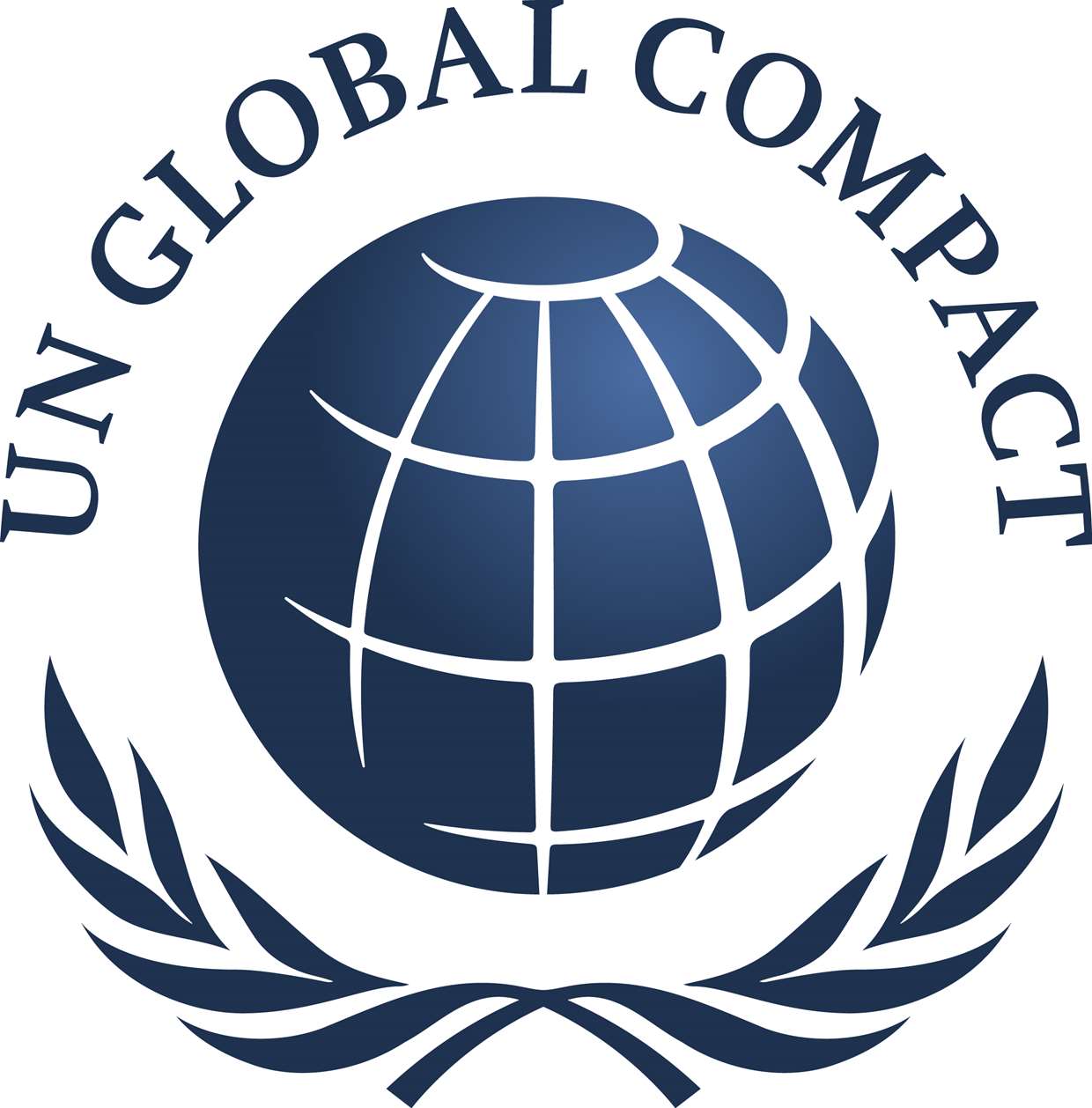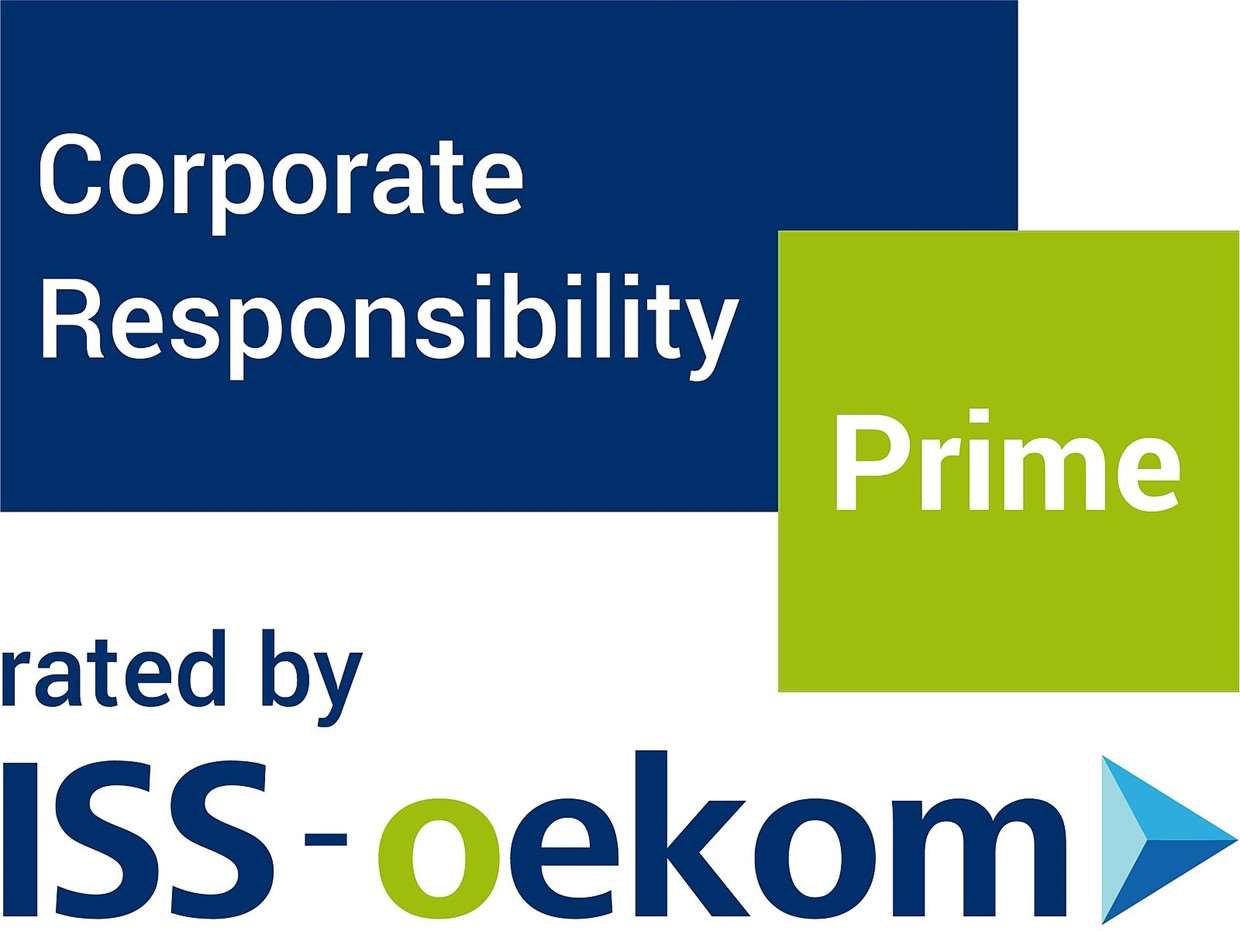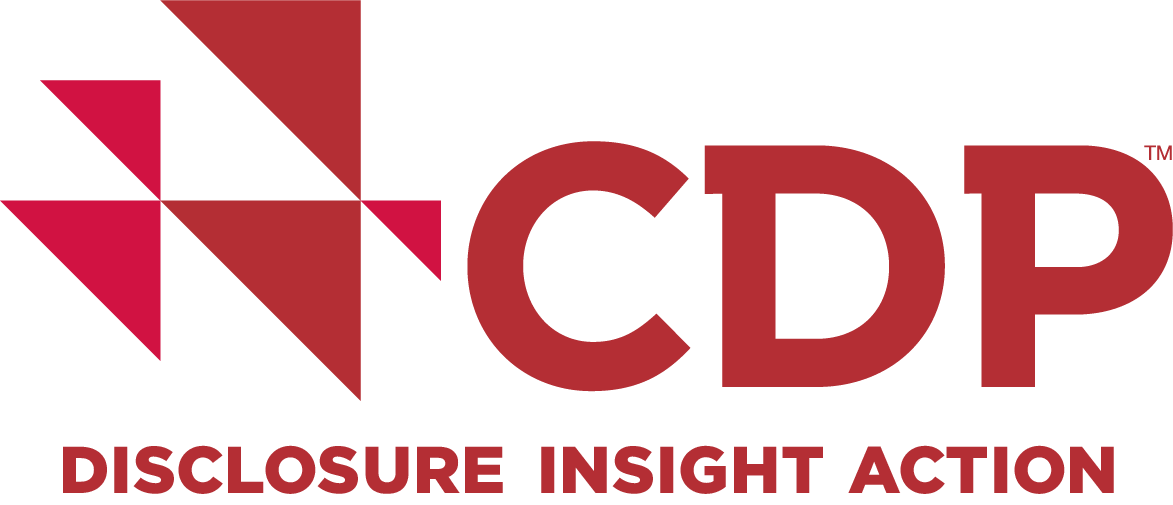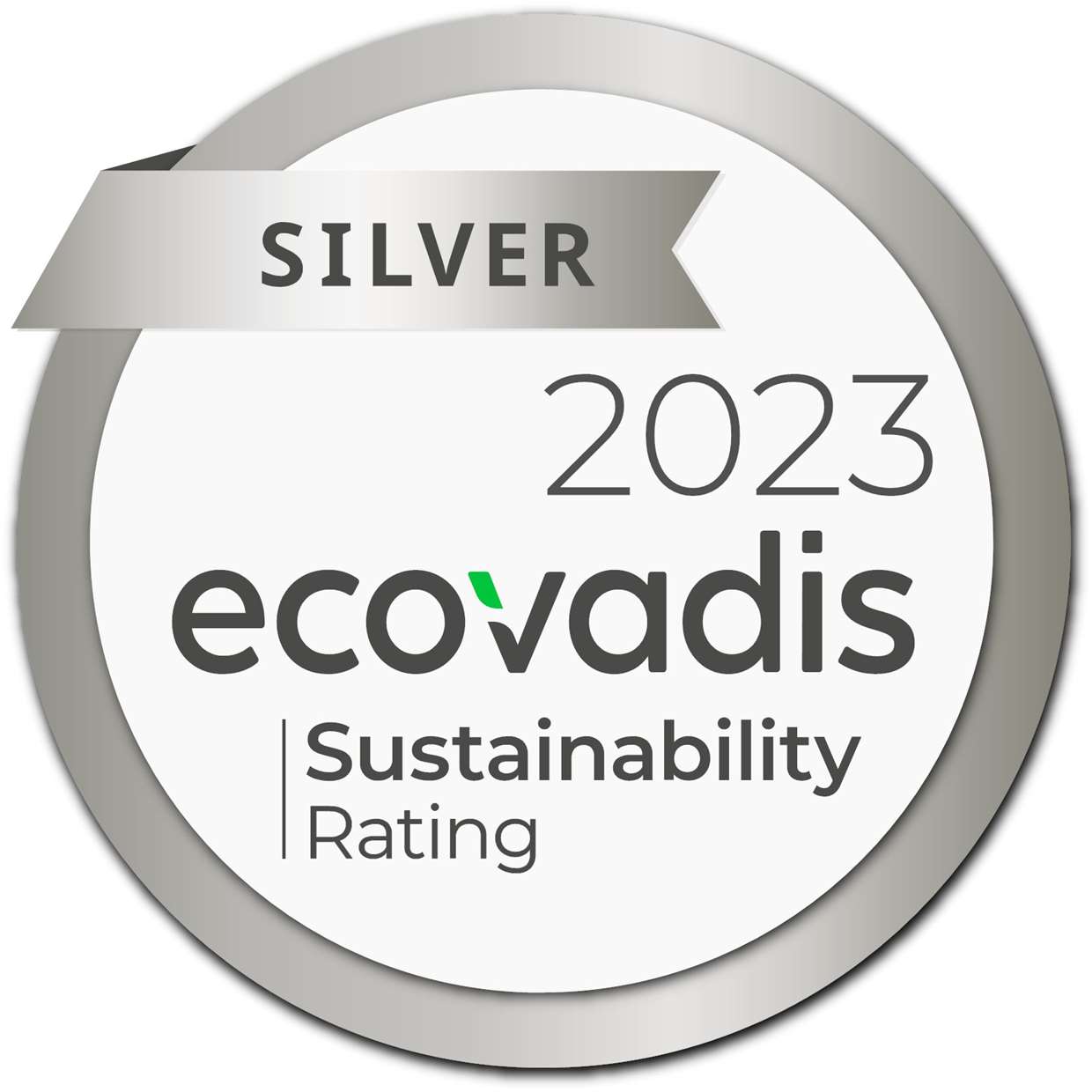Corporate governance
Sustainability strategy and organization
We shape the future of aviation. In doing so, we drive growth, prosperity, and global progress. Sustainability is an integral part of our business. In the interests of sustainable development, we have defined important areas of action and clear objectives.
As an engine manufacturer and key player in the sector, we want to actively shape the transformation of aviation. Our efforts are focused on climate action and our vision of emissions-free flight. In addition, as a manufacturing company and employer of more than 12,000 people, we embrace the principle of bringing sustainability, economics, ecology, and social responsibility into harmony. Our commitment is based on the observance of statutory regulations and internal standards—essentially, on those enshrined in the MTU Code of Conduct and in our Policy Statement on the Protection of Human Rights. Our guiding principle “We shape the future of aviation” reflects our sustainable approach.
UN Global Compact and Sustainable Development Goals

The UN Global Compact is a unique multi-stakeholder initiative that we joined in 2011. As a member, we are committed to upholding the ten principles for respecting human rights, ensuring fair working conditions, protecting the environment, and preventing corruption. We consider them important guidelines for responsible corporate governance, and we also pass them on to the supply chain by means of a Code of Conduct.
As a member of the UN Global Compact and the local Global Compact networks in Germany and Serbia, we also want to contribute to the UN’s 2030 Agenda. At the core of the agenda are 17 goals for sustainable development, or SDGs for short, which address three dimensions—economy, environment, and society. We support the implementation of the SDGs and have identified eight for MTU to focus on.
→ Learn more about our contribution to the UN’s 2030 Agenda here
External standards and guidelines that we follow:
- UN Universal Declaration of Human Rights
- Principles of the UN Global Compact
- The UN’s 2030 Agenda and Sustainable Development Goals (SDGs)
- Core labor standards of the International Labour Organization (ILO)
- German Corporate Governance Code
The fields of action and goals of our Sustainability Strategy 2025+
Our claim
As a technology leader, we are shaping the future of sustainable aviation through innovative propulsion solutions. Emissions-free flight is our vision. In doing so, we stand for responsible and environmentally friendly production, maintenance, and procurement and offer a safe and attractive working environment.
Corporate governance
- Comprehensive sustainability management
- Ensure the security of information and systems
- Protect personal data in all areas of the company
- Compliance as part of the corporate culture
- Active commitment to combating corruption in all business areas
- Ensure compliance with embargo and export guidelines
- Regular and open dialogue with all stakeholder groups
Employees
- Ensure compliance with human rights at our own sites
- Provide active and targeted employee development at all hierarchical levels
- Continuously promote diversity and equality of opportunity in the workforce
- Enable a healthy work-life balance for all employees
- Ensure a high level of health and safety in the workplace
- Promote mutual employer/employee dialogue
- Continuously increase external and internal employer attractiveness
- Provide trust-based leadership
- Ensure a high level of employee satisfaction
Product
- Make product quality and flight safety top priority
- Compile the MTU Group’s Scope 3 activities
- Reduce the climate impact of products during operation
- Reduce the energy consumption of products during operation
- Minimize the health effects of product use (exhaust and noise emissions)
Production & maintenance
- Reduce CO2 emissions at all production sites (Scope 1–3)
- Continuously improve resource efficiency
- Efficient management processes have been established
- Advanced procedures in site and plant operations
- Raise employee awareness of environmental protection in production
Procurement
- Human and employee rights are central components of our business relationships
- In our cooperation with suppliers, we pay attention to a resource- and environment-friendly value chain
- CSR is embedded in our contracts and sourcing decisions. In this way, we safeguard social and ecological standards
- Responsible handling of conflict minerals is ensured
- A Scope 3 upstream carbon footprint is compiled
Society
- Research collaborations for joint knowledge building
- Corporate citizenship: MTU as part of society and a good neighbor
- Employees use the knowledge they have acquired at MTU to play a responsible role in society
On the path to climate neutrality
MTU is committed to the goal of limiting global warming preferably to 1.5 degrees Celsius, as set out in the Paris Agreement. We are pursuing our long-term vision of emissions-free flight through our Clean Air Engine (Claire) technology agenda. With Claire, we are working to develop innovative propulsion concepts that are intended to meet the high safety standards of aviation, greatly reduce impact on the climate, and fulfill all future noise emissions limits. We firmly believe that taking this approach to our business will allow us to remain competitive and successful in the long term. More information about aligning our product stewardship with the Paris Agreement in the chapter Climate impact of aircraft engines
Our value creation should be more sustainable as well. We are implementing concepts to reduce the carbon footprint of our own operations in production and maintenance at our sites, and strive for carbon neutrality in the long term. More information under Climate action at our sites
Our human rights due diligence
The protection of human rights is an important concern for MTU and is a fundamental component of responsible corporate governance. MTU has established a risk management system for potential human rights violations in its supply chain and in its own business operations. To further strengthen respect for human rights, we introduced new due diligence processes in 2023. As a high-tech company, we are generally exposed to a lower risk of human rights violations than other industries. More information about Respect for human rights within MTU and Responsible management of global supply chains
Control-relevant targets for measurable progress
Sustainability topics are an integral part of MTU’s strategy and selected control variables from sustainability management are relevant to compensation for the Executive Board and senior managers. This will strengthen sustainability in the Group and make progress more measurable. For the 2023 financial year, the environmental, social, and governance (ESG) goals came from the areas of climate action in site operations and employee training.
For climate action, annual progress is taken from the company’s climate strategy, the ecoRoadmap. In 2023, the ESG-relevant performance indicator CO2 as a component of variable compensation was tied to the goal attainment of all the Group’s production and maintenance sites for the first time. Detailed presentation of the ecoRoadmap and goal attainment in 2023
In the area of employees, the ESG goal under the leadership value “We empower” will be determined from employees’ qualifications and training. This process takes into account the average number of training days per employee at the German sites.
Sustainability embedded in the Group
Chief Sustainability Officer (CSO) on the Executive Board
We have integrated sustainability into organizational structures and established sustainability management throughout the MTU Group. Through the corporate sustainability (CS) management system, we monitor our sustainability strategy, performance, and goals.
A Corporate Sustainability Board (CS Board) is responsible for the implementation of CS management on behalf of the Executive Board. At the Executive Board level, CEO Lars Wagner is also Chief Sustainability Officer (CSO), making him MTU’s first representative for sustainability. He is primarily responsible for defining the company’s positioning and its sustainability strategy and objectives, advised by the CS Board. In this way, sustainability is integrated into our corporate decision-making processes. Moreover, the CSO, with the support of the CS Board, monitors goal attainment and ensures that the CS organization is suitably aligned with the requirements and successfully embedded in the company. In carrying out these responsibilities, the CSO works closely together with the CS Board.
Corporate Sustainability Board as a central body
The CSO has mandated the CS Board as an advisory and decision-making body. The CS Board draws its members from the tier-1 senior management team in corporate functions relevant to sustainability. It is responsible for driving sustainability forward at MTU, controlling CS activities on behalf of the CSO, and adopting CS actions and initiatives. The CS Board reports directly to the CSO as well as reporting regularly to the Executive Board and the Supervisory Board.
The CS Board meets regularly and as required. If necessary, representatives from further operational functions are invited to the meetings. A central CS department was set up in 2024 to support the CS Board and its executive tasks. This manages Group-wide sustainability activities as well as the overarching CS management and ensures the Group’s regulated sustainability reporting. The new unit is part of the Finance department and therefore within the sphere of responsibility of the Chief Financial Officer (CFO).
At the heart of the interdisciplinary CS team are the divisional coordinators and site coordinators for sustainability. They play an important part in operational implementation, working with experts in their disciplines to develop goals and measures, implement them, and take responsibility for monitoring their progress. In collaboration with the representatives in the business areas, the divisional coordinators are heavily involved in shaping the strategic focus of their respective goals and developing these goals over time. CS coordinators at the sites support the CS divisional coordinators and the central Corporate Sustainability Management & Reporting department. The CS team also jointly conducts the annual materiality analysis for the sustainability topics. By implementing this organizational structure, we ensure that sustainability is embedded throughout the entire company for all relevant topics.
Corporate Sustainability Management at MTU
We steer our sustainability strategy through the CS management system, while the CS Board acts as the decision-making body in conjunction with the Chief Sustainability Officer. A central CS department, under the direction of the Chief Financial Officer, is responsible for the further development of sustainability management within the MTU Group and for sustainability reporting. CS divisional and site coordinators are responsible for the goals and measures in their disciplines.
Risk management for non-financial issues
We integrate sustainability risks into our internal control system, and map and evaluate them using defined processes. MTU has established a Group-wide integrated risk management and control system, based on the leading international COSO II ERM Framework standard, with which it manages risks and opportunities for its business. The system also takes into account non-financial risks. For the topic of compliance, MTU has established a separate risk assessment and a separate reporting line, which the Compliance Officer coordinates.
Potential risks for the environment, society, and employees that arise from MTU’s business activities are identified and assessed on a quarterly basis by those responsible in the technical areas and by the CS Board. This is done in line with the existing opportunity and risk process, taking into account the respective probability of occurrence and the impact of the risk. The risk inventory is also reviewed for new material issues or aspects. Should substantial sustainability risks be identified for third parties, the CS Board passes the report on to the risk management team (risk board) and, if appropriate, to the Executive Board.
The risk assessment for the 2023 financial year identified no material risks in relation to the topics of our CS strategy. Material risks are those that are highly likely and have a severe negative impact.
Materiality analysis: Significant topics along two dimensions
We review our sustainability strategy annually to reflect recent changes and developments, refining our priorities in the process. The Group-wide corporate sustainability strategy is the starting point for an annual materiality process that MTU uses to identify key issues for the company and its stakeholders. For 2023, this materiality analysis was already based on the new European Sustainability Reporting Standard (ESRS, as of November 2022), which will become mandatory for the first time for the 2024 financial year. The topics were assessed along two dimensions: in terms of the social and environmental impact of MTU’s business activities (impact materiality); and in terms of their business relevance for the company (financial materiality). Financial materiality refers to opportunities and risks for MTU, measured in terms of probability of occurrence and extent. Impacts on the environment and the society are estimated on the basis of their scale (low/high), scope (individual/global) and remediability (irreversible/reversible) along the entire value chain for the time dimensions short-, mid- and long-term. The materiality is based on a gross assessment.
The analysis covers all our key business areas and fully consolidated sites as well as information gathered from our dialogue with internal and external stakeholders. → More about Stakeholder dialogue We map the results in a materiality matrix.
Materiality matrix: Important sustainability topics and their weighting
GRI 3-2 Evaluation of topics for the 2023 financial year adopts the materiality concept in accordance with the legal implementation of CSR guidelines in Germany (CSR-RUG) and based on the new European Sustainability Reporting Standard (ESRS)
Sustainable investment
The European Commission has set itself the goal of climate neutrality by 2050 with the European Green Deal. Furthermore, through the EU taxonomy established as part of the action plan on financing sustainable growth, the European Commission calls on companies to classify their business activities according to sustainability criteria. The taxonomy provisions apply to six environmental targets in the areas of climate change, water and marine resources, circular economy, pollution, and biodiversity. In addition, companies must demonstrate observance of minimum social standards in order to claim green revenue, capex, and opex shares. MTU’s approaches and EU taxonomy information can be found in the non-financial statement of the 2023 Annual Report (p. 112ff.)
As demand for ESG-focused investment opportunities increases, frameworks and requirements on sustainability reporting are on the rise, too. With the EU’s Corporate Sustainability Reporting Directive (CSRD), an extended framework for companies’ non-financial statements will apply for the first time for the 2024 financial year. External reporting on ESG issues is thus becoming more and more demanding and complex. MTU is preparing to implement the CSRD requirements by setting up a separate department for regulated sustainability reporting in the area of finance.
Outstanding performance: MTU ratings & rankings
MTU’s performance in relation to non-financial indicators is regularly assessed by capital-market analysts and independent experts. Two leading rating agencies confirmed the company’s above-average sustainability performance in January 2024: ISS ESG Corporate Rating awarded MTU the prime label for industry leaders, while EcoVadis awarded MTU the silver medal.
“Every year, we undergo ratings and assessments to get a good idea of where we stand with our sustainability performance. The ratings also give us valuable information on how we can improve further.” LARS WAGNER, CEO and Chief Sustainability Officer of MTU.
Important indices and rankings in which MTU is currently represented:
ISS ESG

MTU Aero Engines is rated Prime Status (C+) in the overall rating.
CDP

In this global carbon accounting of the annual climate footprint, we received a score of B in 2023.
EcoVadis

MTU received a silver medal in this holistic corporate responsibility rating.
MSCI
MTU Aero Engines is rated AA.